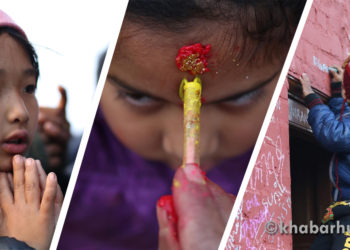UNITED NATIONS: One in three young people in 30 countries said they have been a victim of online bullying, with one in five reporting having skipped school due to cyberbullying and violence, in a new poll released today by UNICEF and the UN Special Representative of the Secretary-General (SRSG) on Violence against Children.
Speaking out anonymously through the youth engagement tool U-Report, almost three-quarters of young people also said social networks, including Facebook, Instagram, Snapchat and Twitter, are the most commonplace for online bullying.
More than 170,000 people between the ages of 13 and 24 participated anonymously in the UNICEF poll, which showed that one in five young people had skipped classes due to internet bullying and violence.
According to a majority of respondents, social networks including Facebook, Instagram, Snapchat and Twitter are the most commonplace sites on which cyberbullying occurs.
“All over the world, young people — in both high and low-income countries — are telling us that they are being bullied online, that it is affecting their education, and that they want it to stop,” Unicef Executive Director Henrietta Fore said in a statement.
According to the survey, some 32 percent of respondents believed that governments should be responsible for ending cyberbullying, while 31 percent said it should be done by the youths themselves and 29 percent pegged the responsibility to end the scourge on internet companies.
Unicef stressed that cyberbullying is already a global phenomenon that is not limited just to developed countries.
Thus, 34 percent of respondents in sub-Saharan Africa said they had been a victim of this type of abuse.
The survey’s findings challenge the widespread notion that cyberbullying among classmates was an exceptional problem mainly affecting high-income students.
Some 39 percent said they knew of private online groups within the school community where children shared information about peers for the purpose of bullying.
The survey was carried out using a digital platform and involved young people from very different countries and regions such as Bangladesh, France, Bolivia, Brazil, Ghana, Iraq, Mali, Romania, Ukraine, and Vietnam.
“Connected classrooms mean school no longer ends once a student leaves class, and, unfortunately, neither do schoolyard bullying,” Fore said.
In response, Unicef is calling for the implementation of policies to protect students, national helplines to support those affected, social networks to improve ethical standards and training for teachers and parents to prevent and adequately respond to cyberbullying.
Unicef released the report on Wednesday.
(Agencies)









Comment